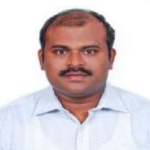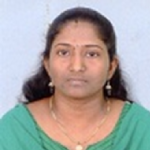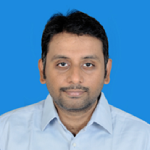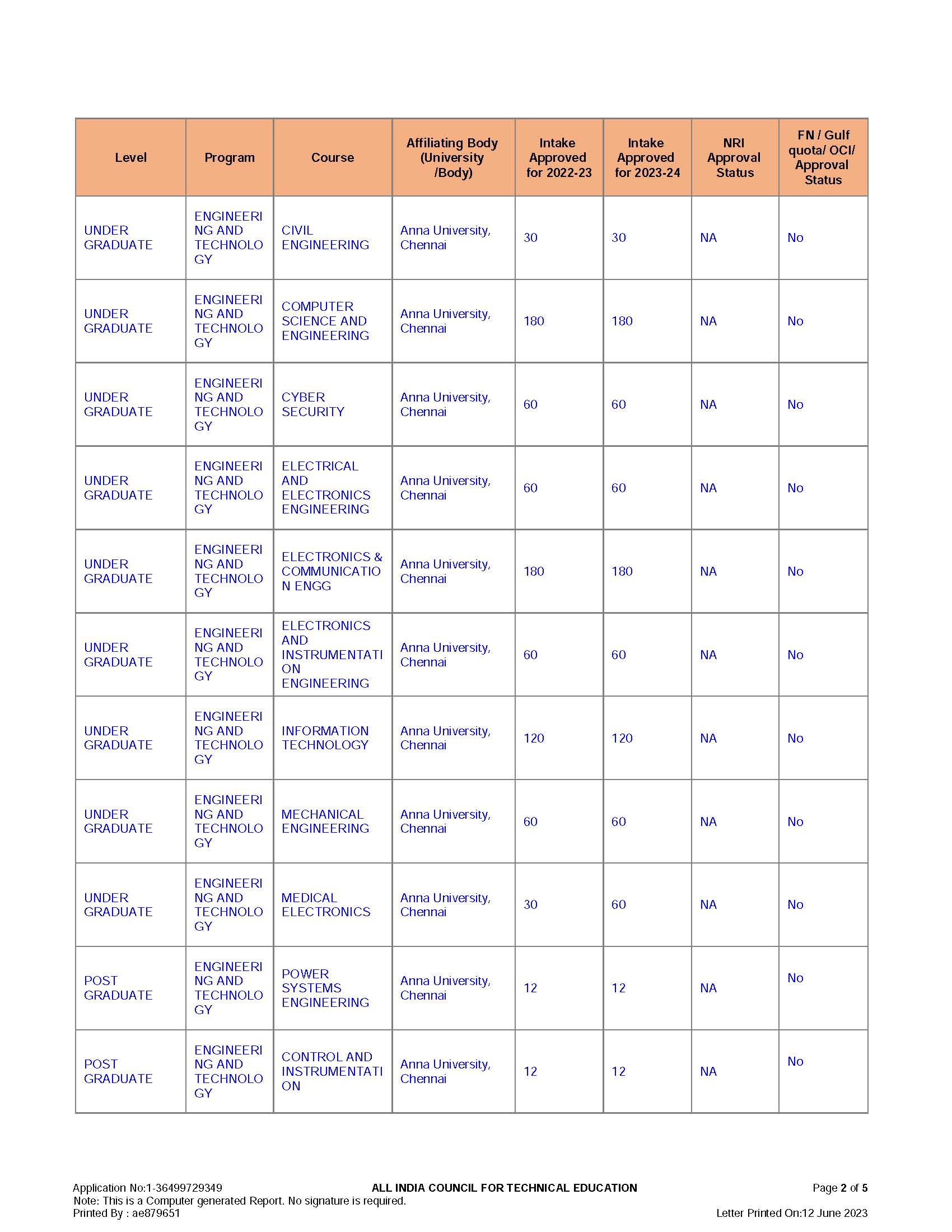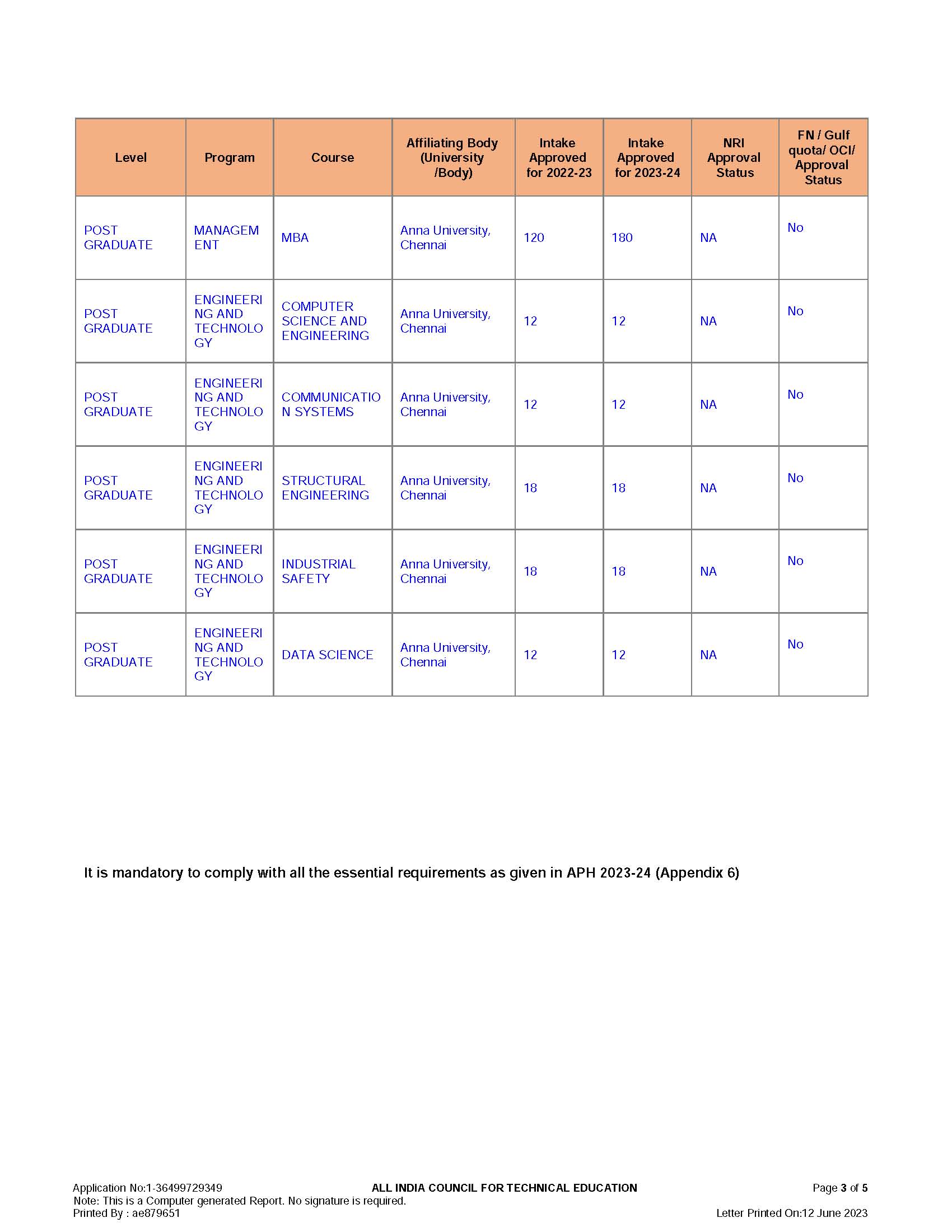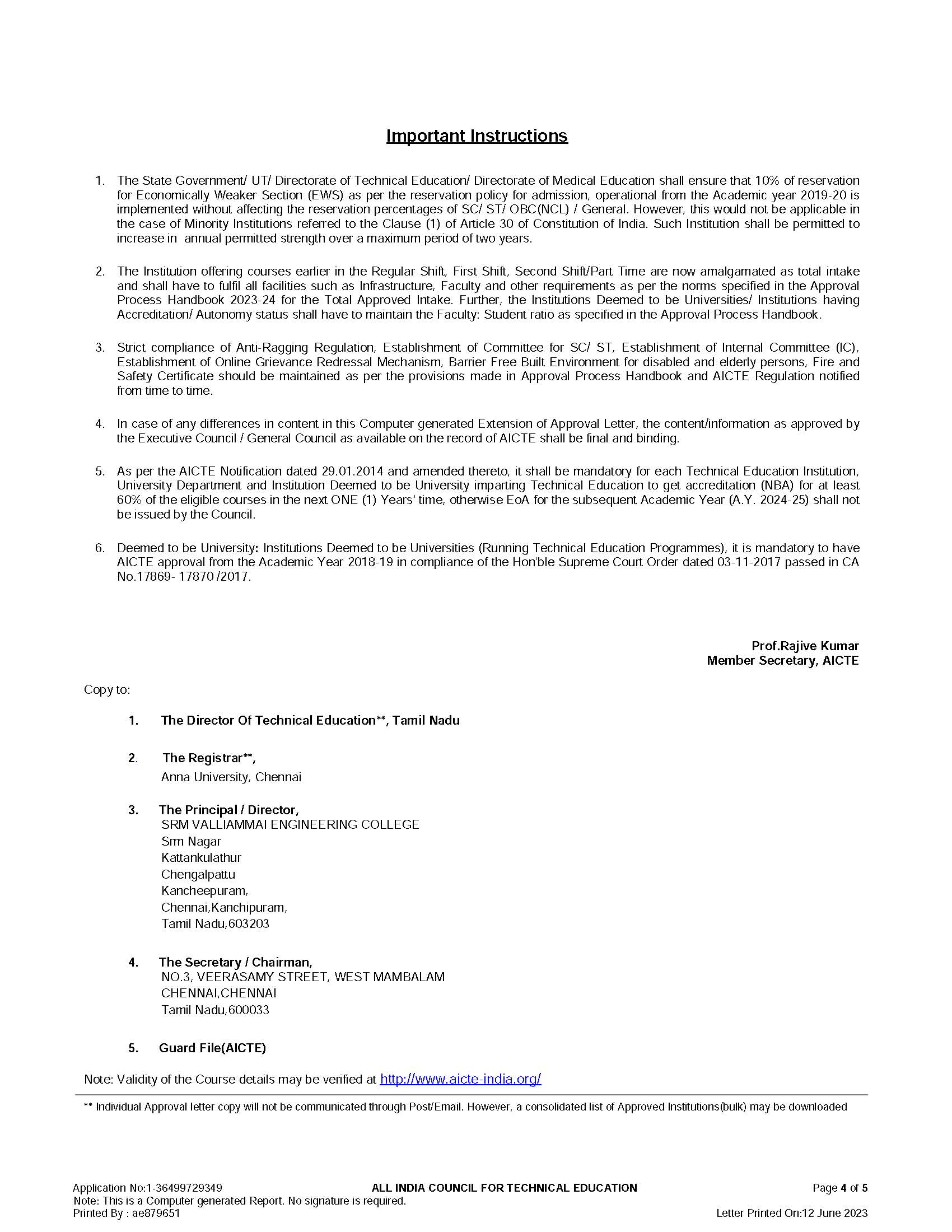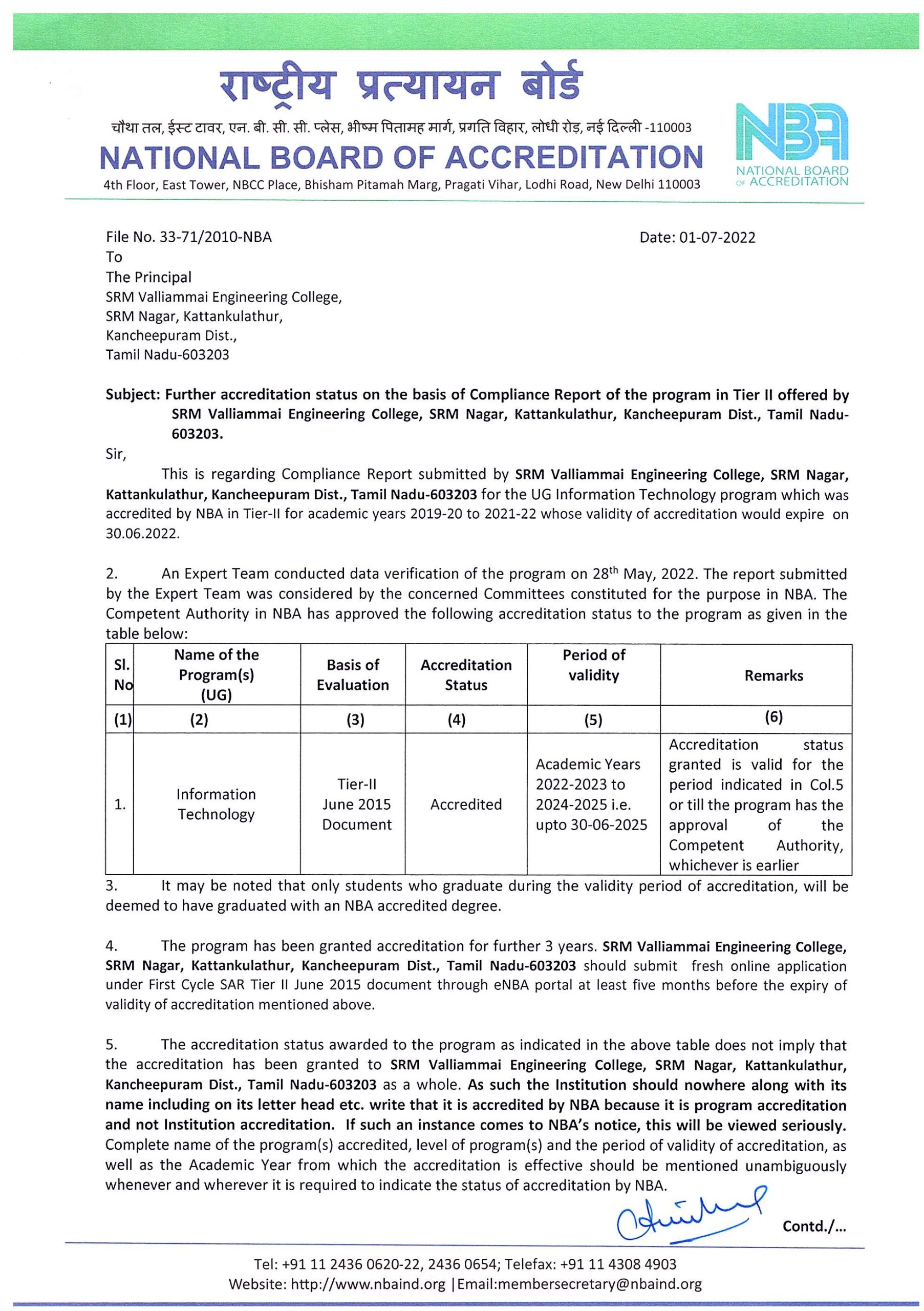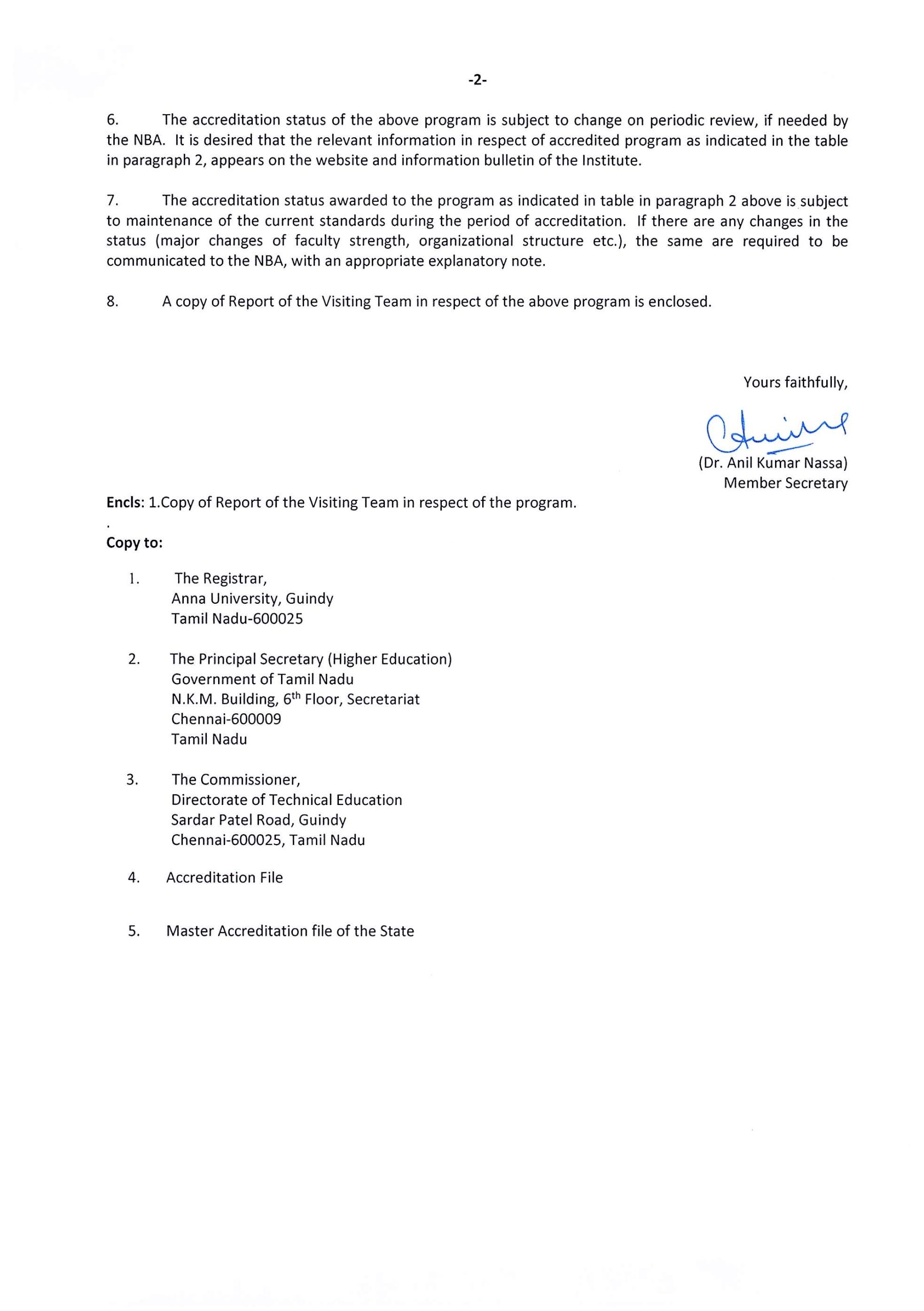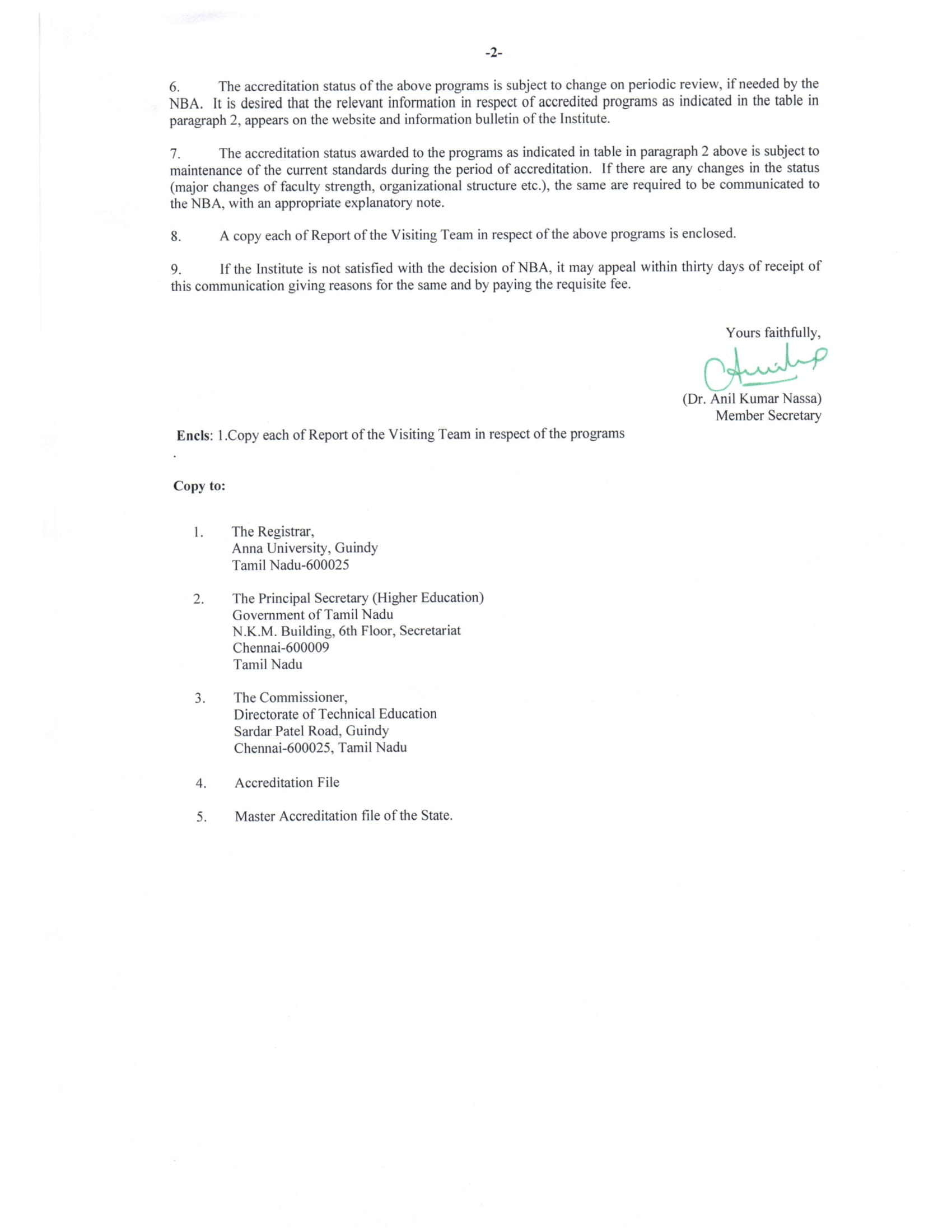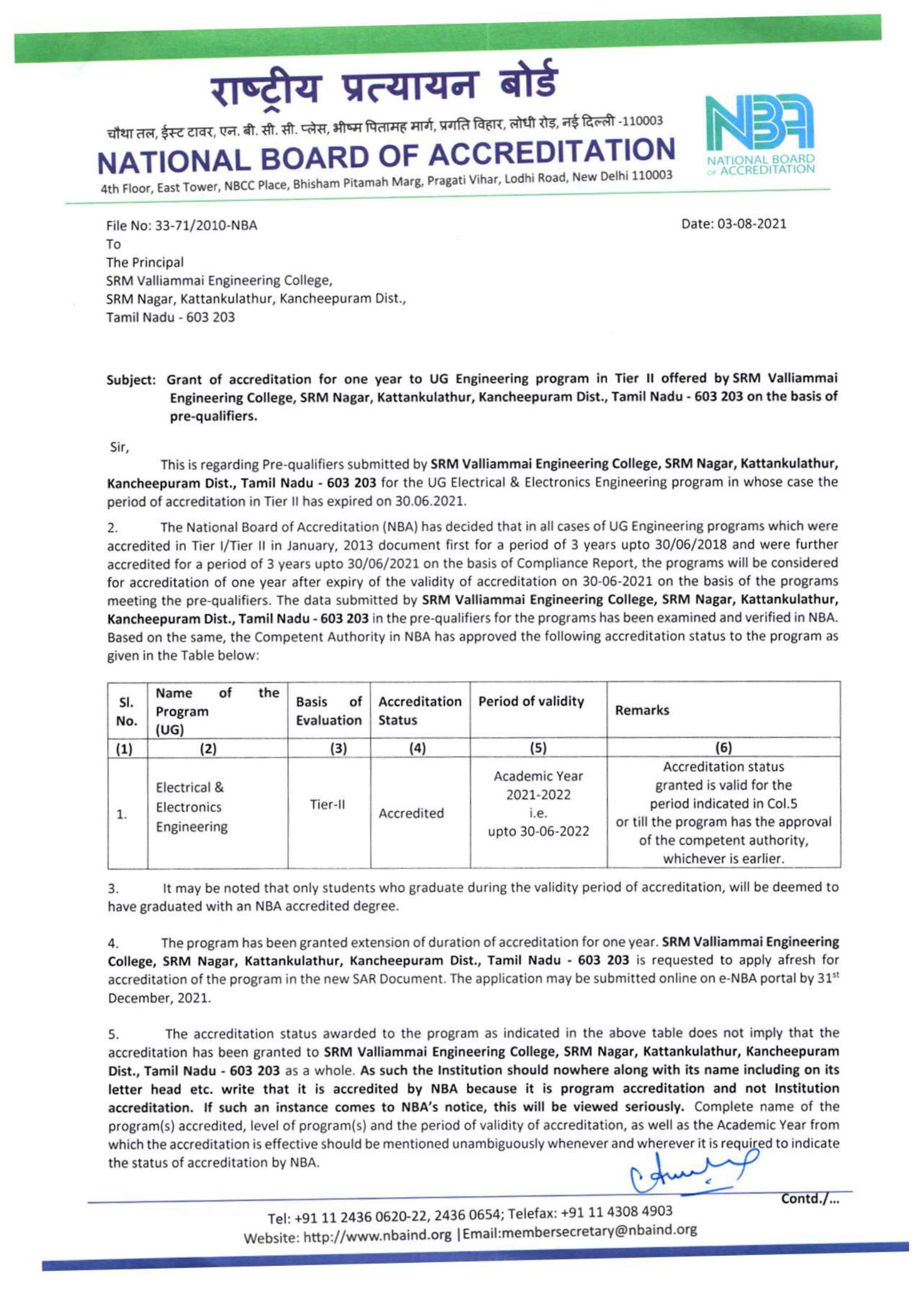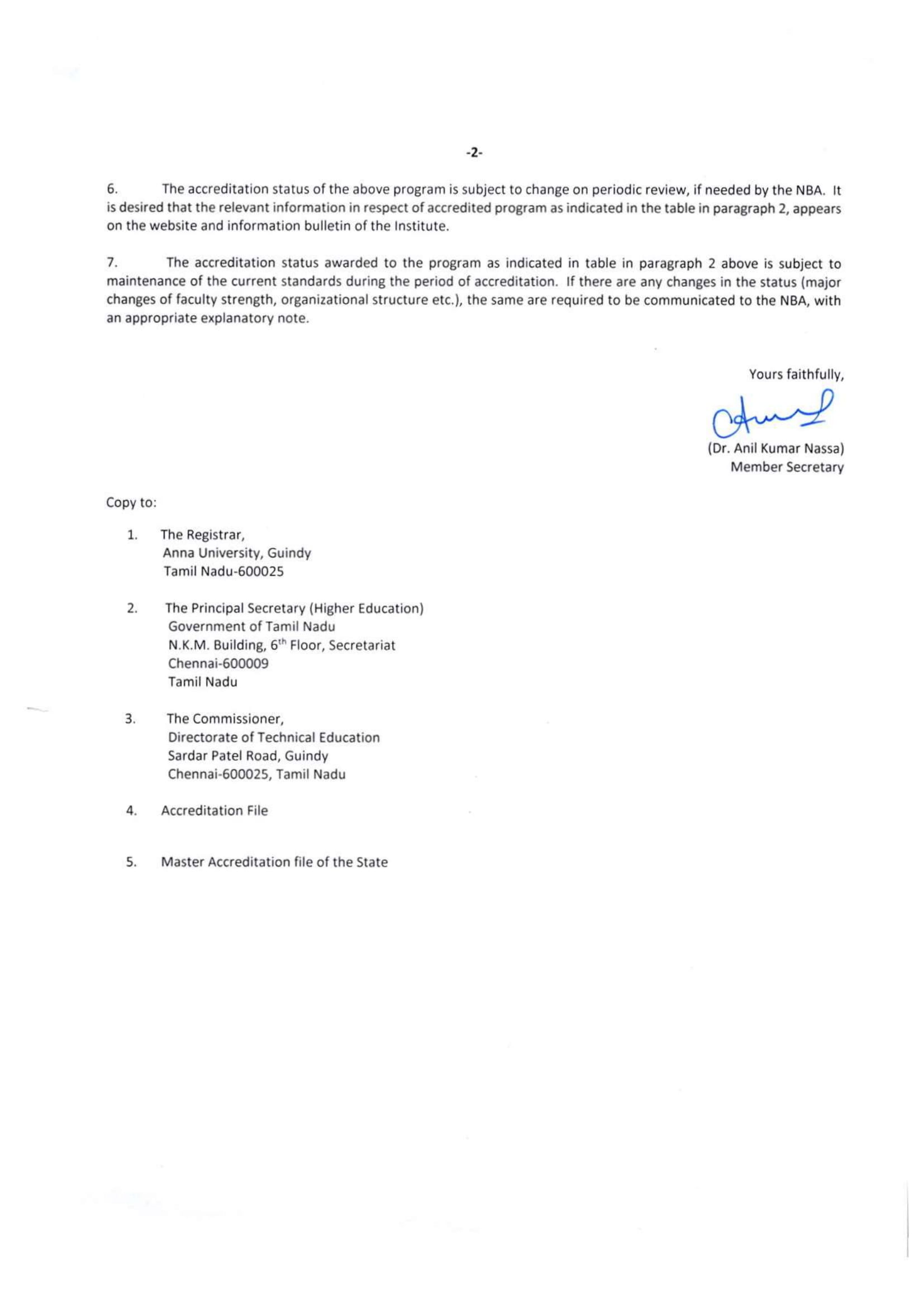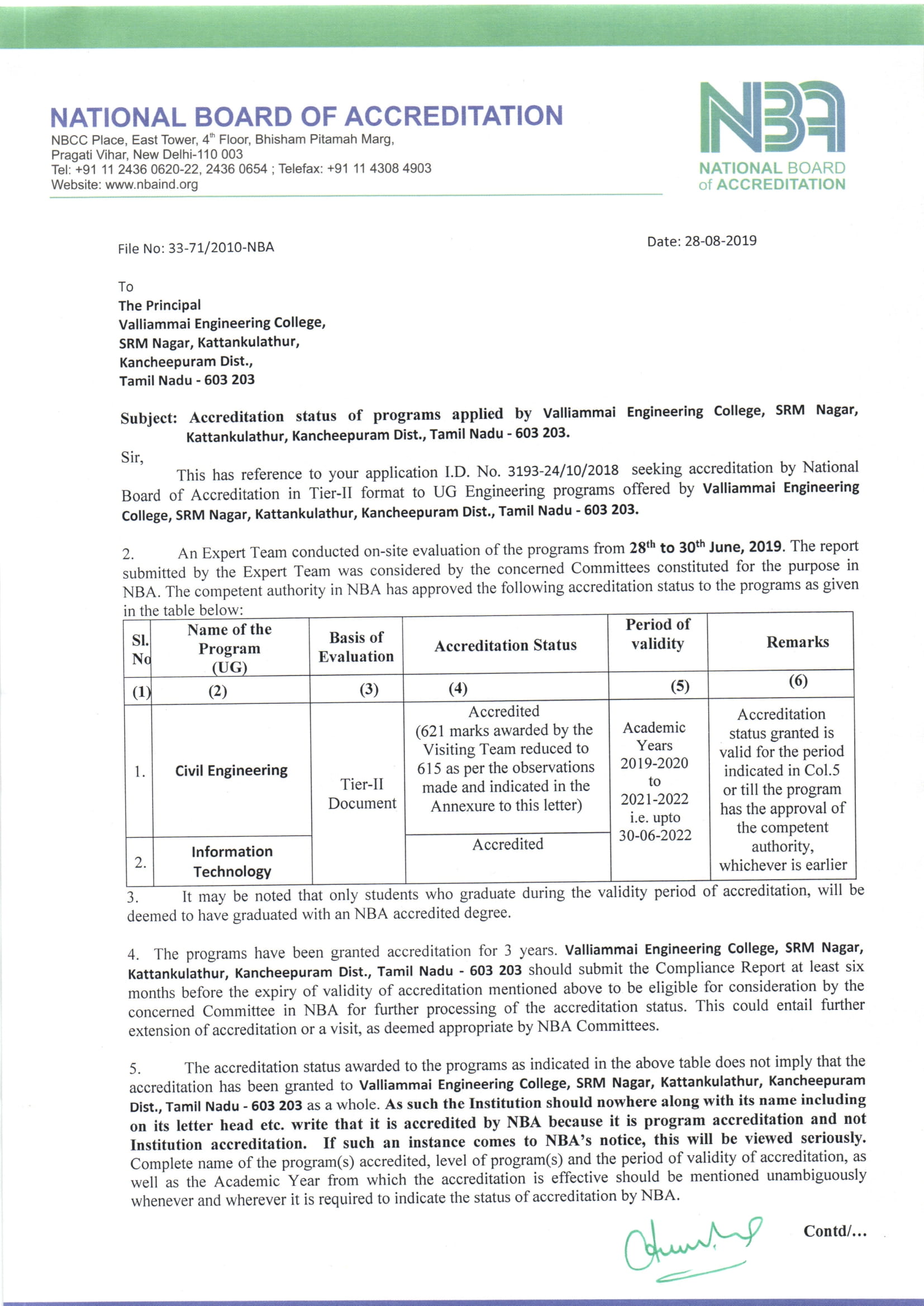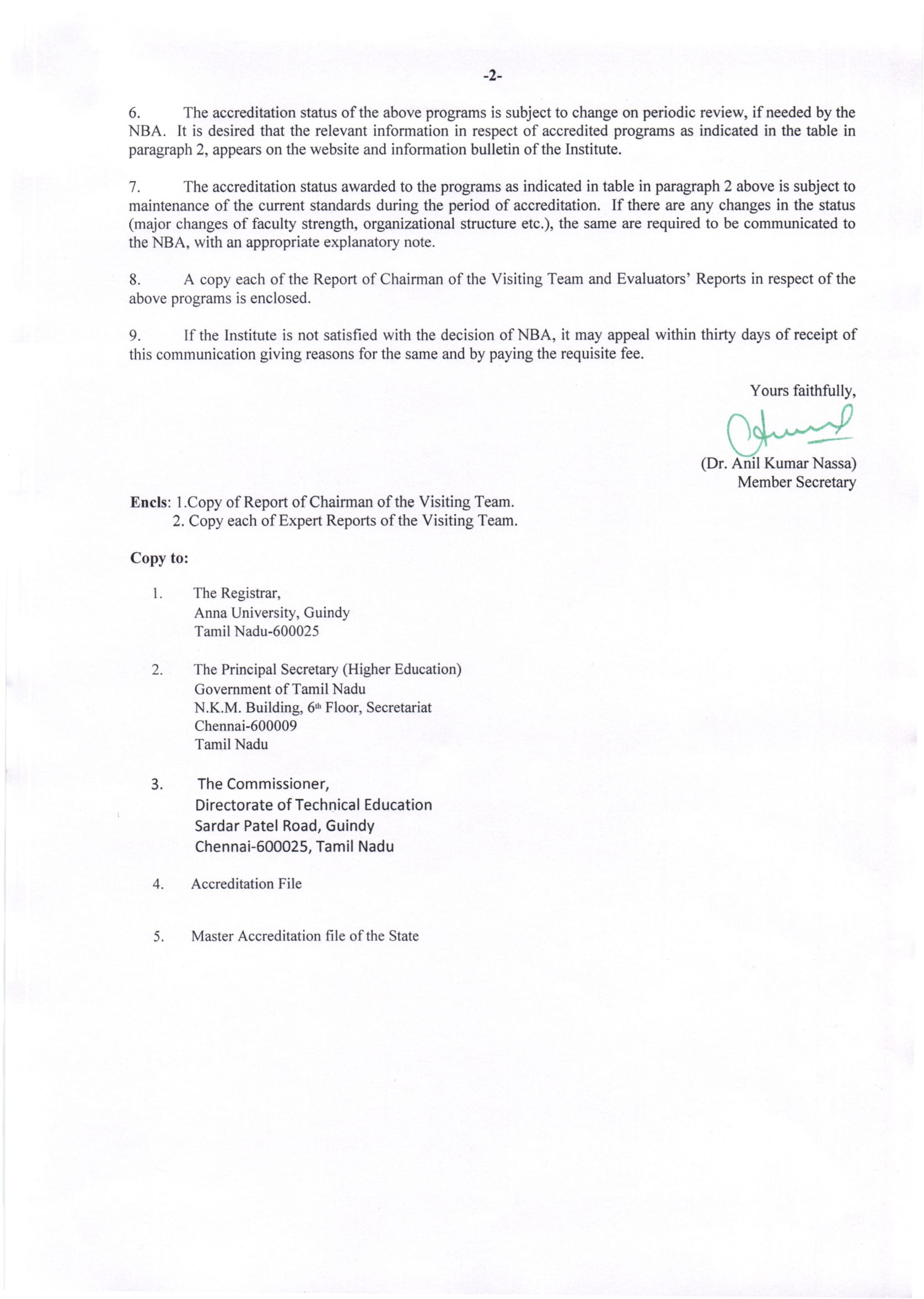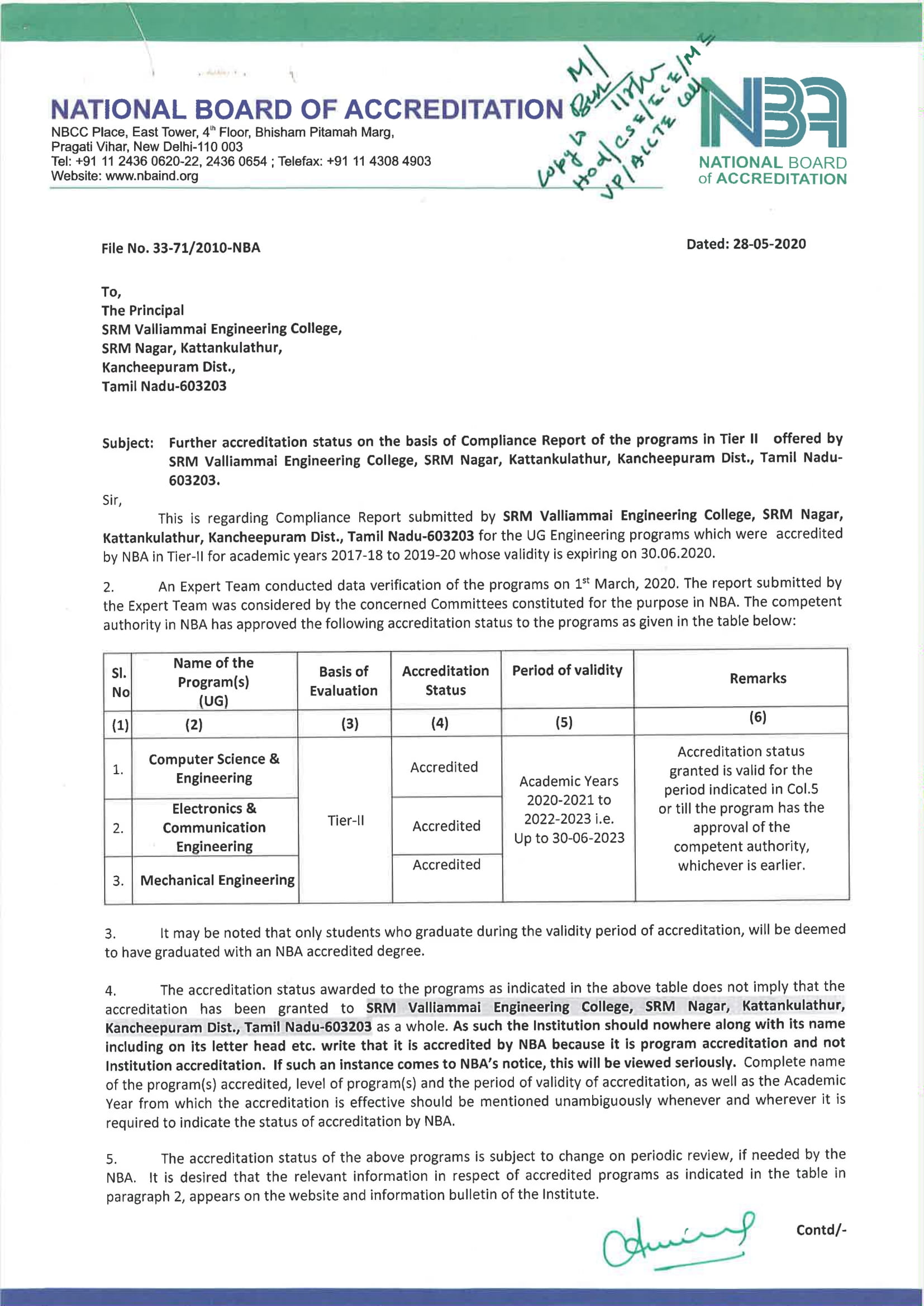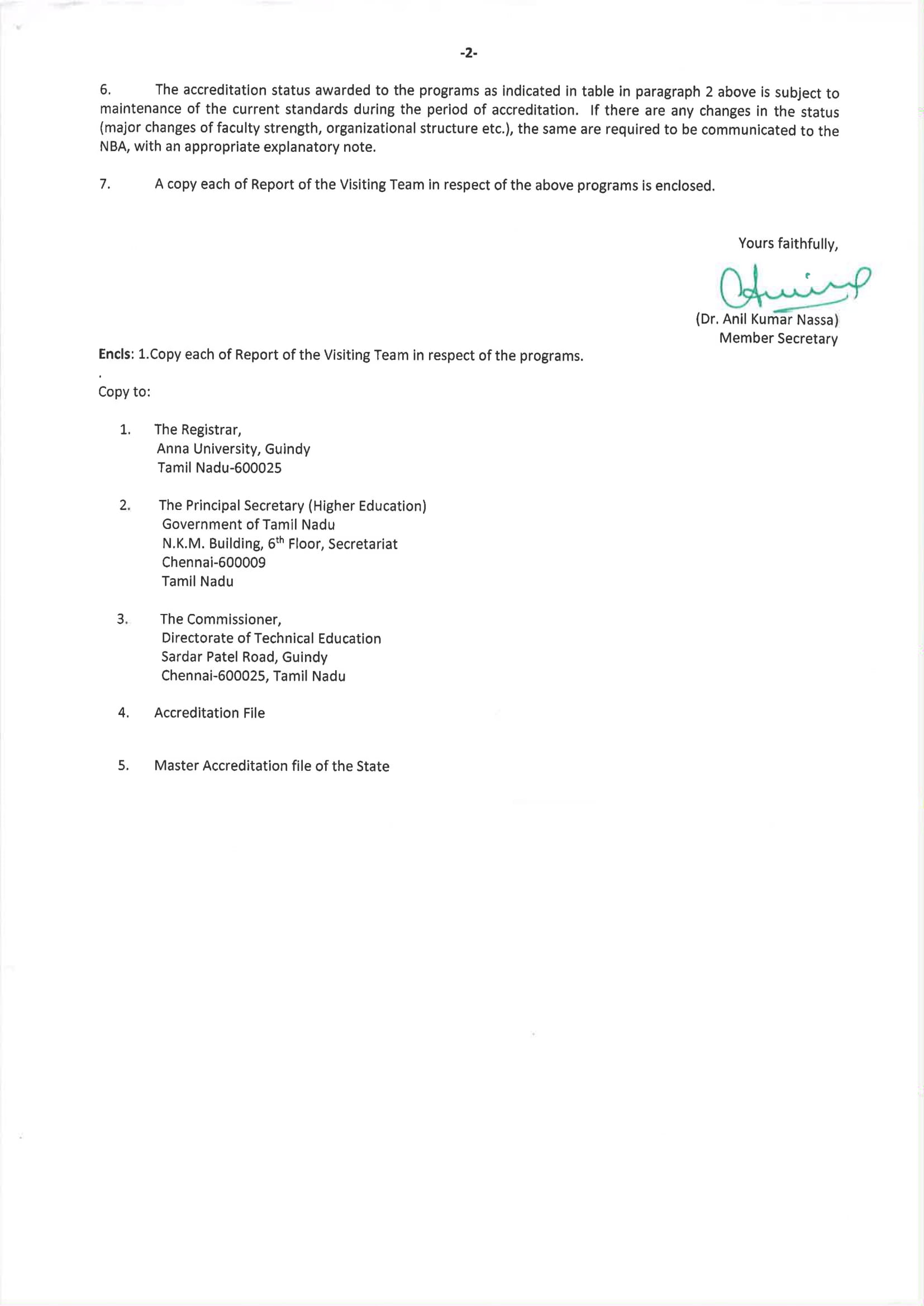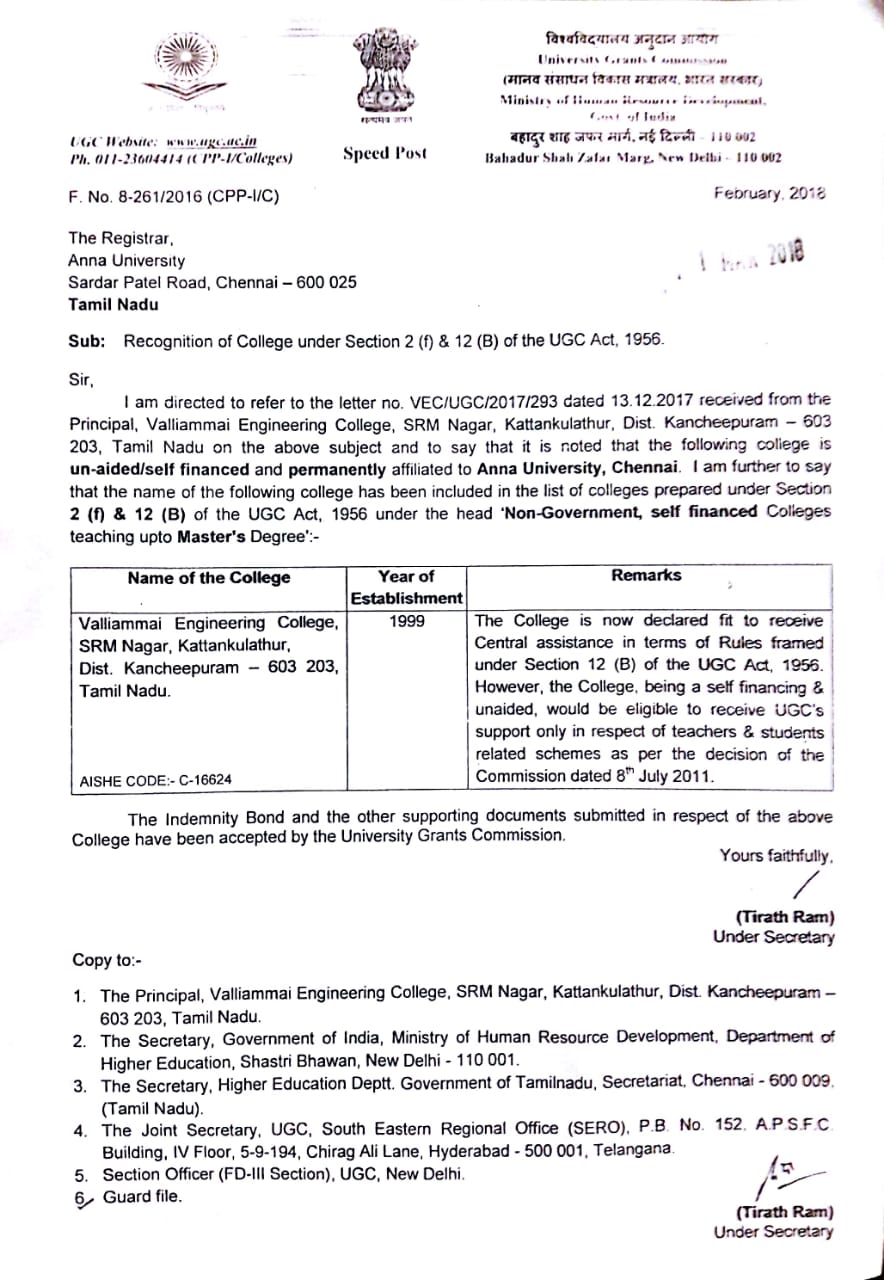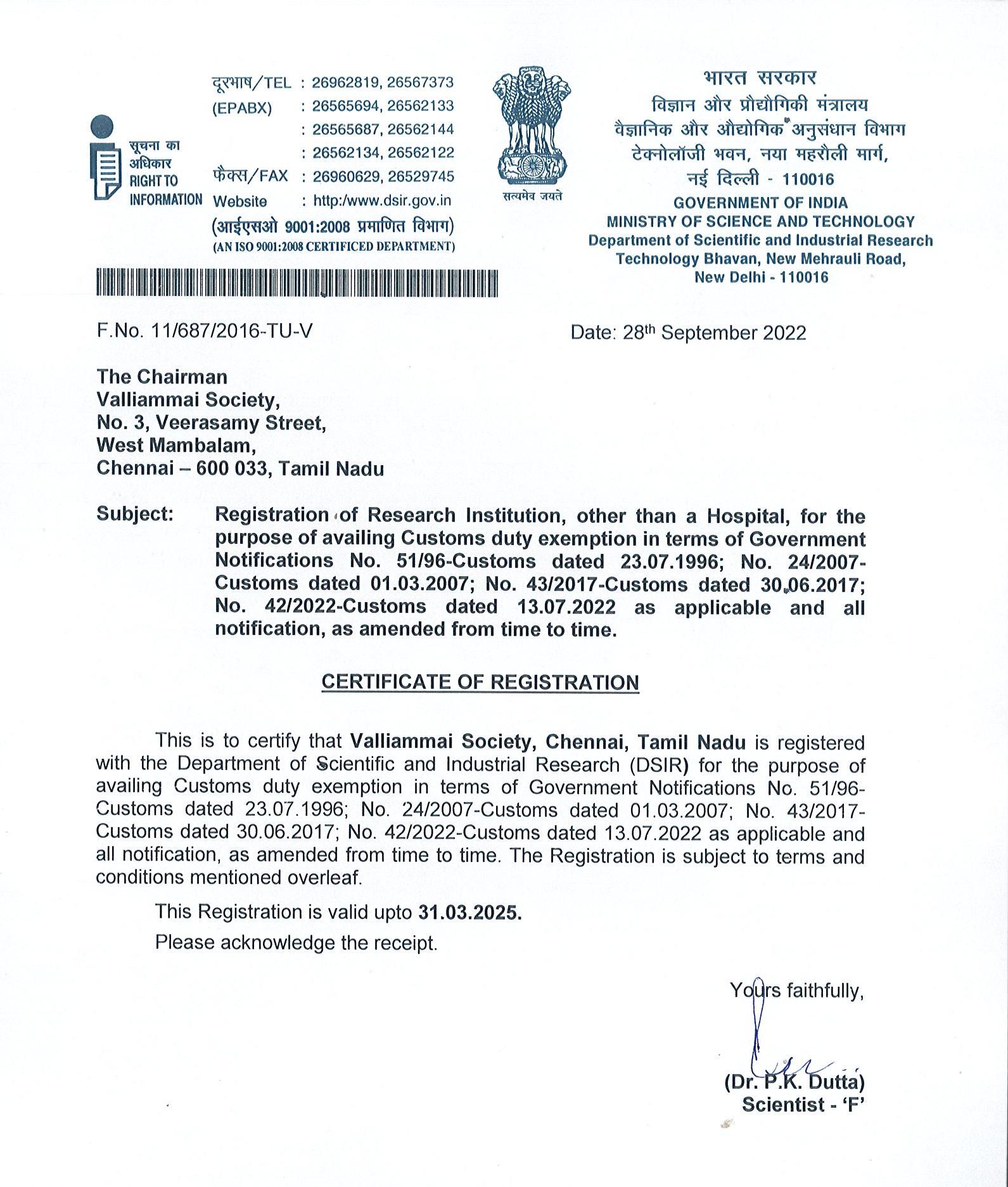
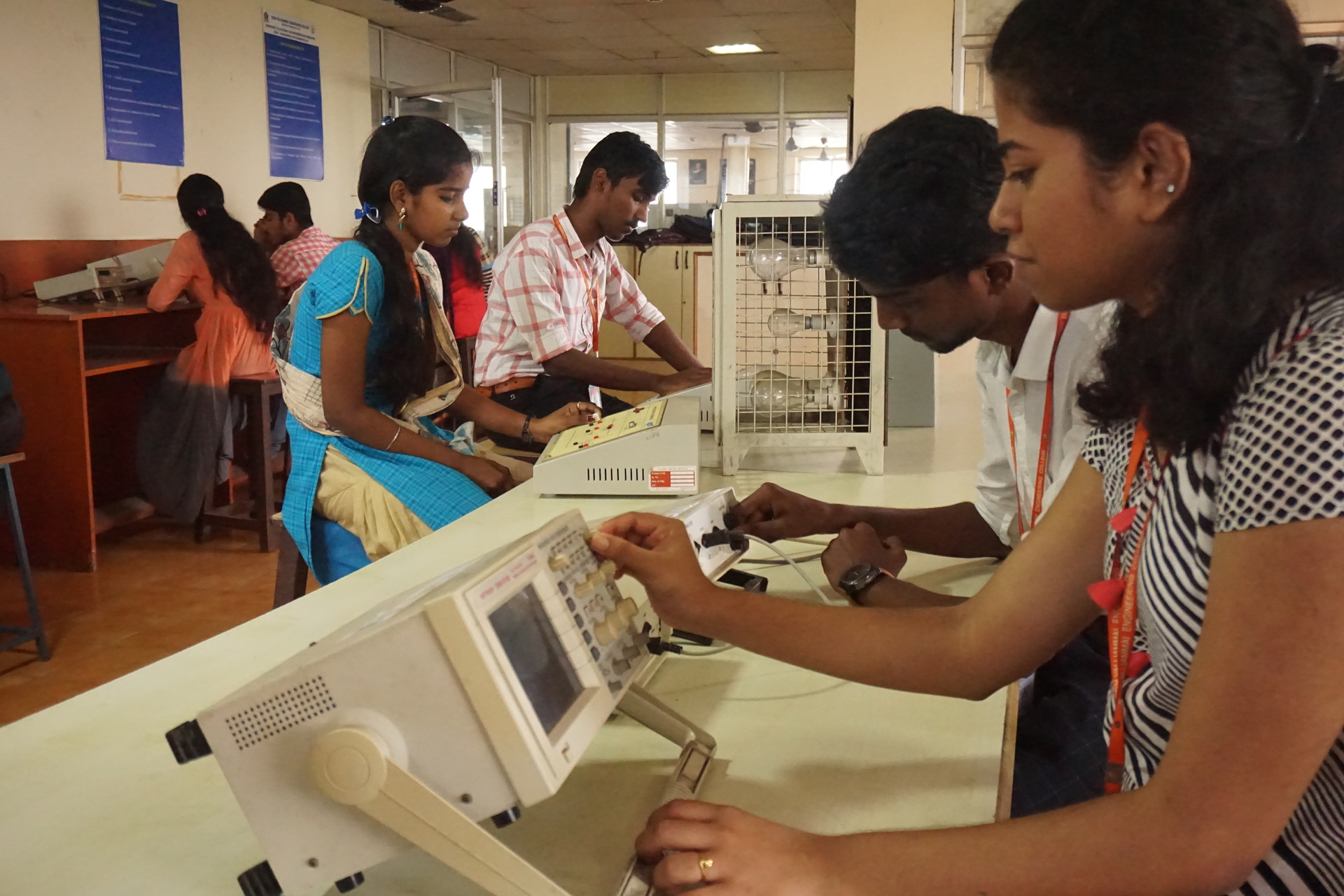
About the Department
Department of Medical Electronics Engineering
The Under Graduate Programme B.E.-Medical Electronics started in the year 2019 and is functioning effectively to impart quality education to under graduate engineering students in the field of Medical Electronics. The institution has become an Autonomous Institution from 2019 onwards, and the curriculum and syllabus is periodically upgraded to meet the Industry requirements through Board of Studies Meeting and hence ensures in producing employable graduates.
The department has highly qualified and well experienced faculties specialized in areas like Instrumentation, Biomedical Engineering, Medical electronics, Applied Electronics. The faculty members are actively involved in Teaching –Learning process and Research activities in the field of electronics with medical applications. The faculty members actively take part in attending and organizing various events to abreast with the latest technological advancement for the betterment of faculty, student and hence the institution.
The need and motivation behind the commencement of the course ‘Medical Electronics’ is based on considering the following scope:
- A Career in Medical electronics is a developing field that makes engineers solve healthcare-related problems and finding cure for diseases by innovating sophisticated equipments.
- Fast growth in medical technology will require a huge number of engineers to develop and manufacture diagnostic devices, drugs and other therapies.
- In the future, there will be a huge demand in private and government job opportunities to recruit medical electronic engineers to work in the area of manufacturing, research, production and quality assurance control.
- Demands on high-quality and low-cost healthcare and medical diagnose/treatments have been rapidly increased
- Medical Electronics is an area that bridges engineering, biology, and medicine disciplines and has great opportunities for industry and new science findings.
Medical Electronics course gives a way over engineering with medical science by laying deep knowledge in electronics. It focuses on physiological functions of human body and integrates it with engineering principles to apply different techniques, skills, tools to solve clinical and healthcare problems for the patient needs like prostheses, medical information systems, artificial organs, instrumentation, care delivery systems and health management.
First year Core Curriculum begins with a common knowledge Base and customizes Students by grounding in basic Engineering Foundation and in Critical Hands on Skills in Engineering Practices, the Course has access to enhance the Learning, Student Perspective and Experience to develop Specialization in areas of ‘Medical Electronics’. Class room learning is complemented by Practice in Hi-Tech Labs, Projects and Hands on Experiences, and through internships so as to foster Knowledge in ‘Engineering and Technology’.
Concept and Importance of Universal Values and ethics are taught and Technical and Soft skill training is also provided in order to transform the students as a successful engineer as well as good human.
The main advantage of doing Medical Electronics Course here is students can be brought to their own hospital, SIMS Hospital and SRM Medical College Hospital and Research Centre (SRM MCHRC) to give hands on experience / demonstration of certain sophisticated equipments.
Vision, Mission, PEO, PO, PSO
Vision
To develop an excellent progressive quality education, translational research through inventive collaborations as per industry requirements to improve the healthcare and well-being of humankind
Mission
M1: To Acquaint students with the current technology to provide consultations and technical support to hospitals, healthcare and service sectors.
M2: To educate students with the fundamental knowledge, interdisciplinary problem solving skills and confidence required to excel in medical electronics through progressive learning.
M3: To propagate creativity, responsibility, commitment and leadership qualities and exhibit professional ethics and values.
Programme Educational Objectives (Peo’s) :
PEO1: To prepare our students for successful placement and career in industries, besides, pursuing higher studies.
PEO2: To prepare students to succeed in employment/profession and/or to pursue post graduate and research educations in Electronics and Communication Engineering discipline in particular and allied engineering disciplines in general.
PEO3: To prepare students with engineering breadth to innovate, design, develop electronics products and to contribute in providing solutions related to multidisciplinary real life problems.
PEO4: To inculcate in students professional and ethical attitude, effective communication skills and teamwork to become a successful professional.
PEO5: To provide students with an academic environment that makes them aware of excellence and life-long learning in emerging technologies.
Programme Outcomes (Po’s) :
- 1. Engineering knowledge:Apply the knowledge of mathematics, science, engineering fundamentals, and an engineering specialization to the solution of complex engineering problems.
- 2. Problem analysis:Identify, formulate, review research literature, and analyze complex engineering problems reaching substantiated conclusions using the first principles of mathematics, natural sciences, and engineering sciences.
- 3. Design/development of solutions: Design solutions for the complex engineering problems and design system components or processes that meet the specified needs with appropriate consideration for the public health and safety, and the cultural, societal, and environmental considerations.
- 4. Conduct investigations of complex problems: Use research-based knowledge and research methods including the design of experiments, analysis and interpretation of data, and the synthesis of the information to provide valid conclusions.
- 5. Modern tool usage: Create, select, and apply appropriate techniques, resources, and modern engineering and IT tools including prediction and modeling to complex engineering activities with an understanding of the limitations.
- 6. The engineer and society: Apply reasoning informed by the contextual knowledge to assess societal, health, safety, legal and cultural issues and the consequent responsibilities relevant to the professional engineering practice.
- 7. Environment and sustainability: Understand the impact of the professional engineering solutions in societal and environmental contexts, and demonstrate the knowledge of, and need for sustainable development.
- 8. Ethics: Apply ethical principles and commit to professional ethics and responsibilities and norms of the engineering practice.
- 9. Individual and team work: Function effectively as an individual, and as a member or leader in diverse teams, and in multidisciplinary settings.
- 10. Communication: Communicate effectively on complex engineering activities with the engineering community and with society at large, such as, being able to comprehend and write effective reports and design documentation, make effective presentations, and give and receive clear instructions.
- 11. Project management and finance: Demonstrate knowledge and understanding of the engineering and management principles and apply these to one’s own work, as a member and leader in a team, to manage projects and in multidisciplinary environments.
- 12. Life-long learning: Recognize the need for, and have the preparation and ability to engage in independent and life-long learning in the broadest context of technological change.
Program Specific Outcomes (Pso’s) :
PSO1: Ability to apply the acquired knowledge of basic skills, mathematical foundations, principles of electronics, Modeling and design of electronics-based systems in solving engineering Problems in healthcare.
PSO2: Ability to use the advanced technology for measurement and develop innovative sustained solutions in health care.
PSO3: Ability to examine indigenous clinical gadgets through the application of their core area ideas and emerging ICTs.
PSO4: Ability to perform effectively as a part of a team with professional behavior and ethics to achieve a successful career.
Professor & Head
Faculty

Mr.C. Satheeswaran M. E., (Ph.D)
Assistant Professor OG

Ms. I. Keren Evangeline M.Tech., (Ph.D.)
Assistant Professor (Ordinary Grade)
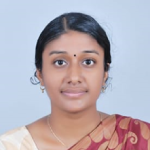
Ms. V. Venmathi M.E., (Ph.D)
Assistant Professor(O.G.)
Laboratory
Medical Equipments Lab

Major Equipment’s
| S.No | Name | Qty |
|---|---|---|
| 1 | Ultrasound diathermy | 1 |
| 2 | Spirometry with associated analysis | 1 |
| 3 | ECG Simulator | 1 |
| 4 | Medical stimulator | 1 |
| 5 | Syringe pump | 1 |
| 6 | Infusion pump | 1 |
| 7 | Short Wave Diathermy | 1 |
| 8 | Single Parameter Biotelemetry System | 1 |
| 9 | Electrical Safety Analyzer | 1 |
| 10 | Surgical Diathermy with Analyzer | 1 |
| 11 | Audiometer | 1 |
Medical Instrumentation Lab
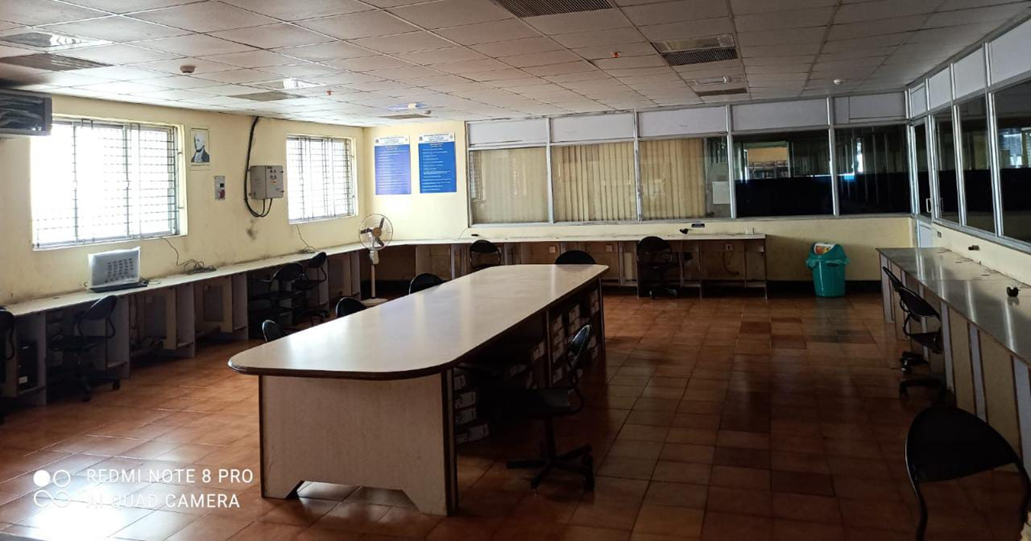
| S.No | Name | Qty |
|---|---|---|
| 1 | Bio Potential Amplifier set up | 1 |
| 2 | Multiparameter Patient Monitoring system | 1 |
| 3 | PH Meter | 1 |
| 4 | Bio Potential Amplifier set up | 1 |
| 5 | Respiration measurement kit | 1 |
| 6 | ECG Recorder | 1 |
| 7 | EMG recorder | 1 |
| 8 | Blood flow Measurement System | 1 |
| 9 | Conductivity Meter | 1 |
Library
Department Library Book Details
The department library facility is available for the department faculty and students for ready reference. It consists of text reference books in different disciplines and project reports. It has a total number of 495 books in the areas of Communication, Electronics, Networks, Medical electronics, Programming languages, etc. and 500 projects reports.
Department library
- No. of Books : 636
- No. of Project Reports : 500
Central library
- No. of Titles : 2050
- No. of Volumes : 6440
- No. of National Journals : 23
- No. of International Journals : 762

Achievements
Under Construction
Events
Department of Medical Electronics
| S.No | Name of the event | Date | Organized by | Resource Person |
|---|---|---|---|---|
| 1 | Seminar on Medical Image Analysis | 23.03.22 | Dr.Komala James Dr.J.Mohan Mr.M.Selvaraj |
Dr.E.Priya Professor / SSEC |
| 2 | Value Added Course on “MATLAB programming and its application in Medical Image Processing | 1-11-2021 to 3-11-2021 | Dr.Komala James Dr. S. C. Prasanna AP (Sel. G) |
Dr. S. C. Prasanna, Dr. V. Suresh Kumar, Mr. A. Pandian, SRM VEC |
| 3 | Seminar on ‘High Frequency Ultrasound Imaging | 30.10.2021 | Dr.Komala James Mr.Satheeswaran.C Ms.V.P.Sandhya |
Dr.R.Gomalavalli, Professor, ECE Siddharth Institute of Engineering and Technology, Andhra Pradesh |
| 4 | School Orientation Programme on Opportunities in Engineering Career | 12.07.2021 | Dr.Komala James Mr.M.Selvaraj Mr.M.A.Seenivasan |
Ms. K. Nikitha, Accenture Ms. G. Nivetha Mindtree |
Placement
Students are studying 3rd year only.
Research
Faculty members and students in the department are highly focused on research and developmental activities. the new developments in medical electronics, aims to facilitate significantly the process of acquisition of biomedical signals, in order to achieve a correct approach when developing diagnostic or medical monitoring, to optimize the required care process and sometimes to reduce the cost of such processes
DST – Fist Sponsored High Frequency System Laboratory
List of Equipment and Software
1. 20 GHz Vector Network Analyzer cum 20 GHz Spectrum Analyzer (Anritsu, Model No: MS 2038C with calibration kit, Test Port Extension and standard accessories).
2. GPS receiver with antenna which can be integrated in Model No: MS 2038C 20 GHz Vector Network Analyzer and Spectrum Analyzer.
3. ANSYS Academic Research HF Package 2019 R1 includes Ansoft Designer (RF&SI) HFSS, SI wave, Q3D Extractor, Optimetrics, ECAD Translators (Ansoft Links), MCAD Translators, Parallel (Multiprocessing). 4. Two Desktop Computers – Acer Veriton with configuration of Intel core i5 7th generation processor 2400 MHz, 8 GB DDR RAM, 1 TB HDD 5400 rpm, Nvida graphic card 2 GB, USB Key board, Optical mouse, 18.5 inch LED Monitor (Serial No.: UXB1JS1P213901440/446, 841029-804915/462915).
4. Medical signal Analysis with VLSI Kit
- Xilinx VivadoHL’x System Edition software
- Nexys Video Artix 7 FPGA
- Genesys 2 Kintex-7 FPGA
- Xilinx Kintex-7 FPGA KC705 Evaluation Kit
- NetFPGA-1G-CML Kintex-7 FPGA
- ZedBoardZynq™-7000 Development Board
- Xilinx SDSoC Development Environment
MOU’s with Institutions:



MOU’s with Industries:





Alumni
Under Construction
Contact
Dr. N. Usha Bhanu B.E.,M.E., Ph.D
Professor & Head (I/c),
Dept. of Medical Electronics,
SRM Valliammai Engineering College,
SRM Nagar, Kattankulathur – 603 203,
Chengalpattu District,
Tamil Nadu, India.
TEL : 044 – 27454784 / 726, EXTN : 8141
FAX : 044 – 2745 1504.
EMAIL : hod.mde@srmvalliammai.ac.in




